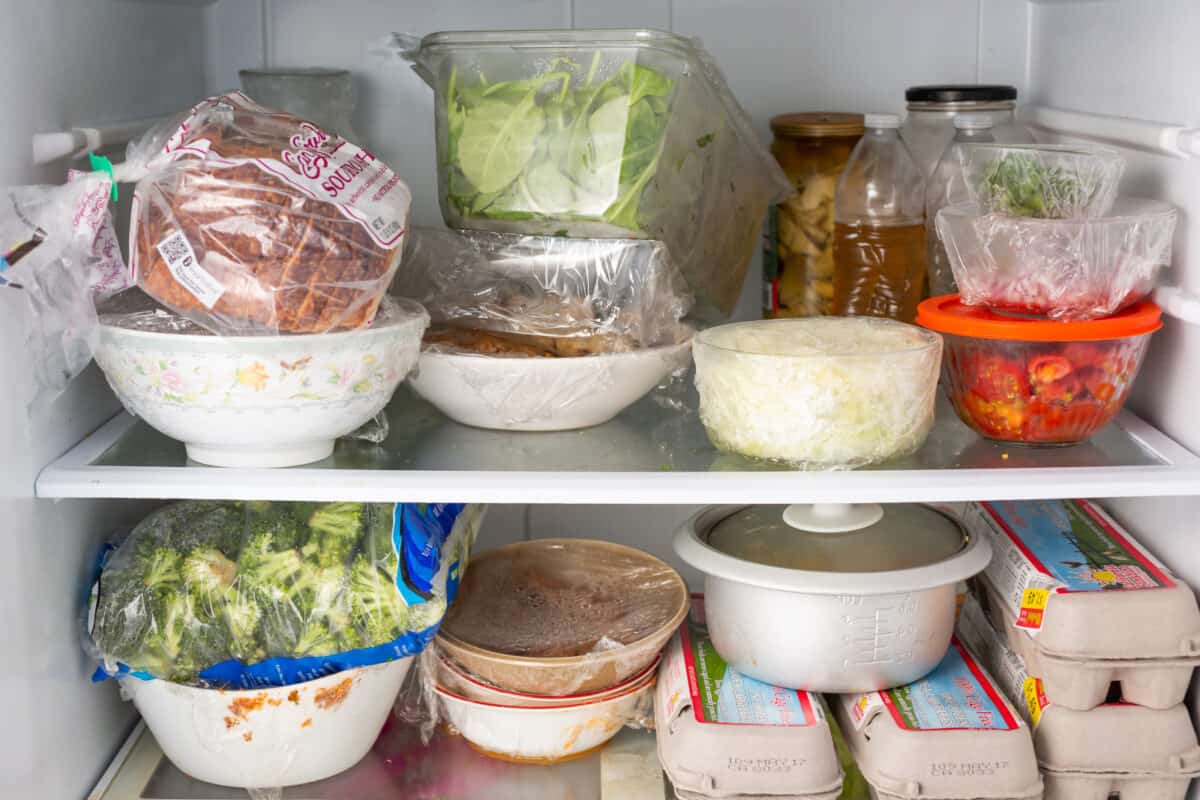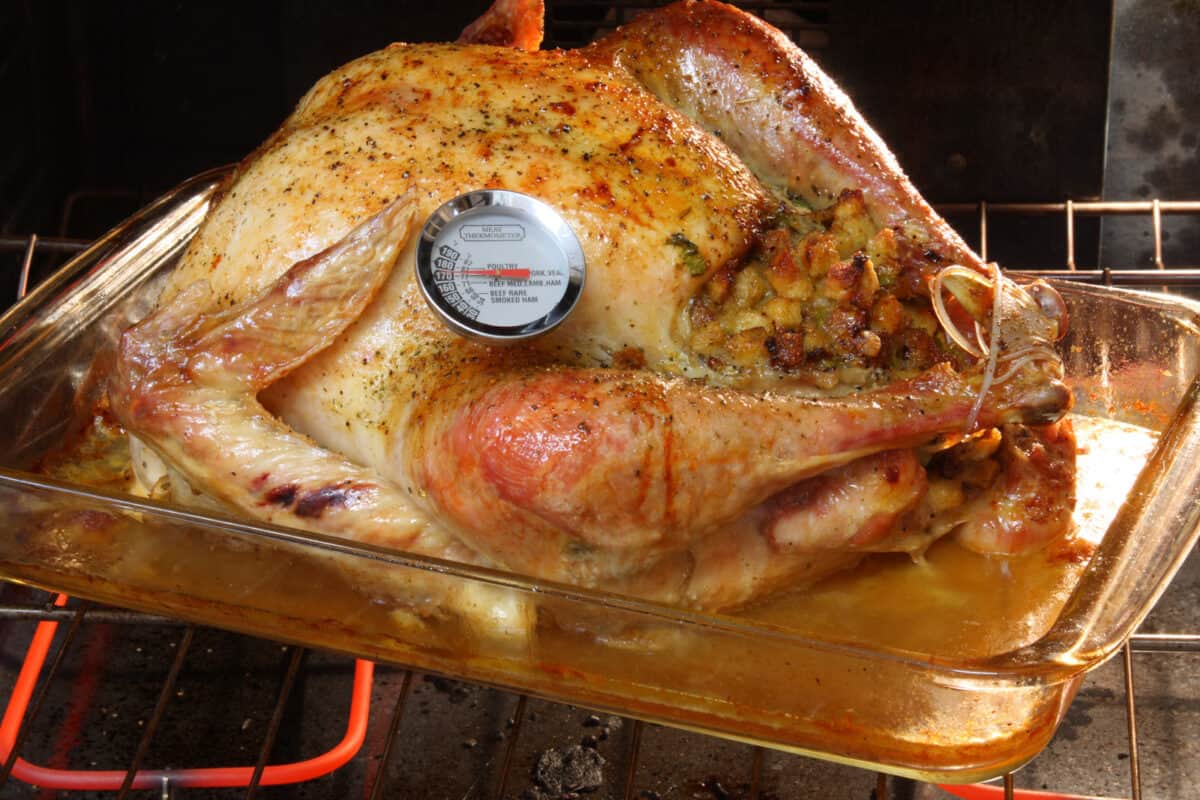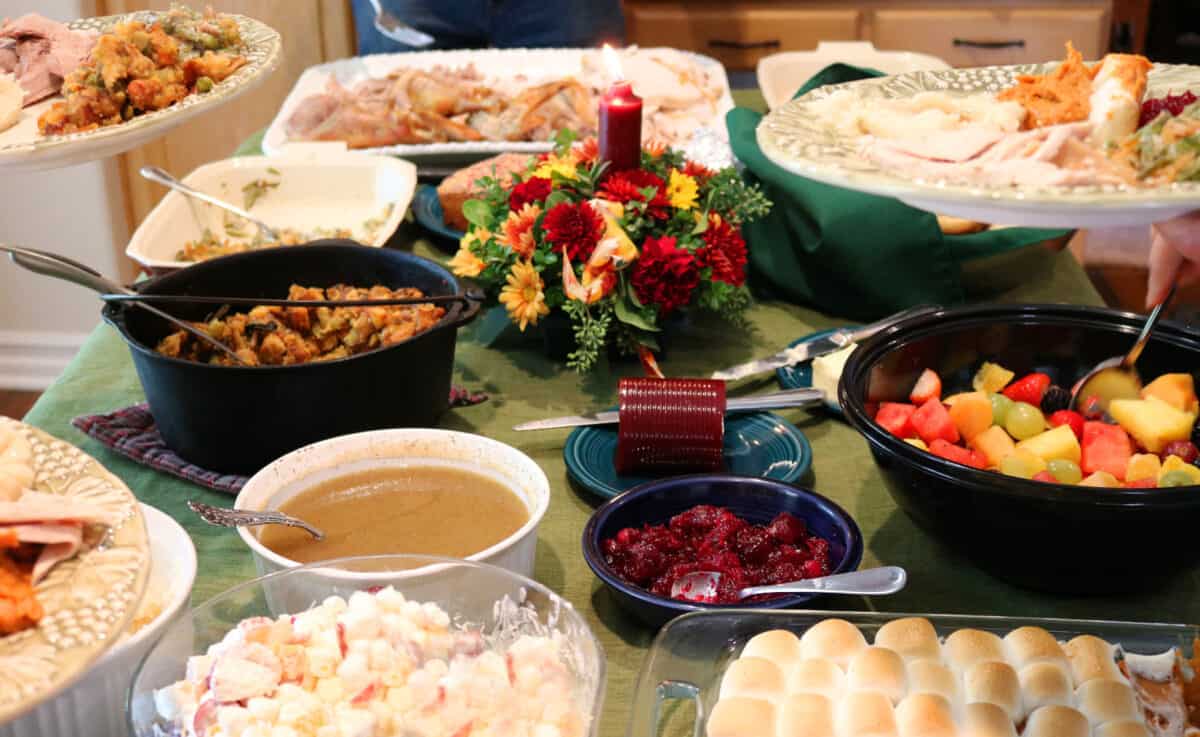The last thing you want this season is for a foodborne illness to pop up out of nowhere and ruin your holiday plans. One second, you’re feeling fine; the next, you’re canceling all your obligations for the foreseeable future and living off Pepto.
Luckily, avoiding a foodborne illness — at least when it comes to your kitchen, cooking, and food prep — is easy enough if you follow a few rules. While it may be easy, though, sometimes it’s equally easy to forget or overlook those standard food safety rules. Sometimes, you eat the raw cookie dough because you’ve always eaten it; you’ve never become sick from it before…until you do.
To help ensure the healthiest, happiest holiday season possible, here’s a refresher on the four basic food safety rules you need to follow around the holidays.

1. Keep a tidy fridge.
During the rushed, sometimes chaotic holidays, you’re often not thinking of keeping the entire house in tip-top, tidy shape, at least not until it’s time for a quick cleaning session ahead of the grandparents’ arrival. However, don’t let your fridge fall into chaos, particularly if you’re, say, thawing a turkey (which should always be done in the fridge) or storing anything else that you couldn’t safely eat raw.
In addition to keeping the fridge clean, keep all meats and eggs in their own separate areas of the fridge, where they can’t drip onto or touch other items, and ideally keep them in sealed containers or bags. (And, while you’re at it, make sure your fridge is set at a safe 40 degrees Fahrenheit or colder.)

2. Use your thermometer.
You very likely own a cooking thermometer — use it.

3. Don’t let food sit out.
You finish cooking an amazing and healthful holiday feast, spread it out buffet-style for your entire family, and everyone digs in and says it’s all perfect… What could go wrong? Well, if you leave that food sitting out long enough for everyone to get seconds or thirds, you could be endangering your entire crew. All leftovers should be properly put away within two hours of cooking, within one hour if the temperatures in your kitchen are over 90 degrees Fahrenheit.

4. Rethink raw eggs.
Certain holiday dishes, like eggnog and French silk or other pies, require raw eggs. It’s important to realize that this does pose a risk (a small one, but it’s there). As such, certain members of your household or family may need to steer clear of these dishes (such as very young children or the elderly). Also, any time you’re making a dish with raw eggs, use pasteurized eggs, which have been heated and are less likely to make you ill.
No raw eggs, no problem? Not so fast. Raw flour also can cause foodborne illnesses, so even your egg-free batters aren’t always completely safe to taste.
Questions or need more tips? Check out the Centers for Disease Control and Prevention Food Safety page.






